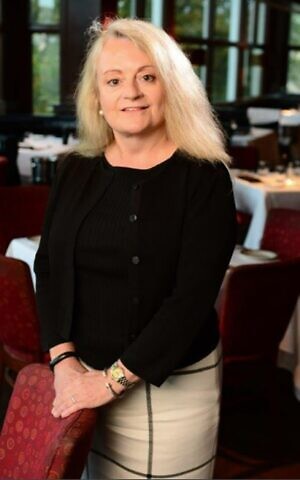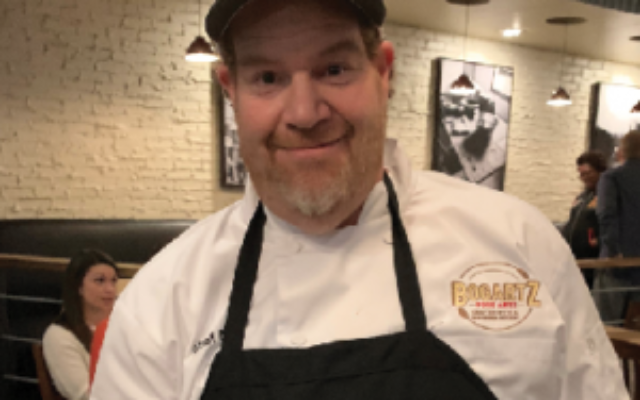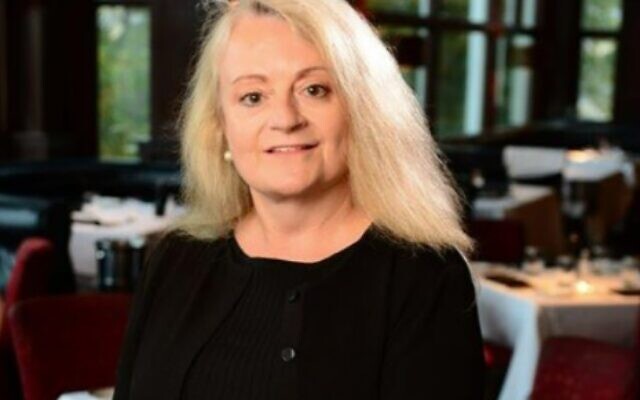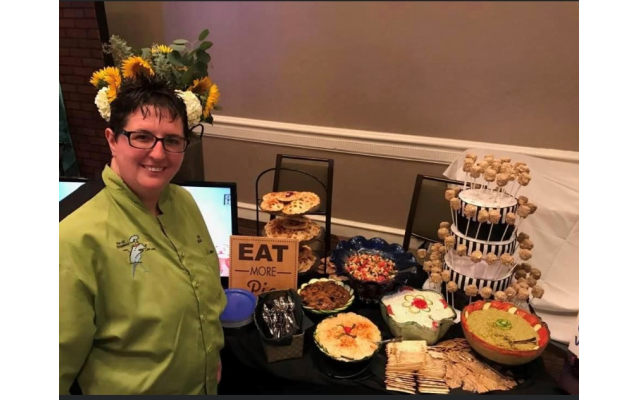Businesses Close Doors During Pandemic
Jewish Atlanta’s restaurants and caterers have closed or temporarily suspended operations during the pandemic. Others struggle to remain open.
The ubiquitous business closure signs around Jewish Atlanta – online and on storefronts – are a clear indication of the economic fallout from a global pandemic.
In compiling its annual “Guide to Jewish Atlanta” recently, the AJT found a number of caterers and restaurants, among others, that have folded in the past year since the last guide was published.

Temporarily closed or permanently closed signs are posted on their online listings or websites. Dialing their phone numbers results in a recorded message: “We are no longer in service.”
In March 2020, 56 percent of all restaurants in the state closed either permanently or temporarily, with the same ratio of workers being let go as a result of the pandemic, according to Karen Bremer, CEO of the Georgia Restaurant Association (GRA). At this point, 21 percent of the state’s restaurants have permanently closed, she told the AJT.
The Georgia figure is higher than the national average of 13 percent, Bremer noted. “That’s pretty significant. People took out second mortgages and sold their homes to fund their restaurants that no longer exist.” GRA represents all food service providers for whom the sale of food amounts to more than half of their sales, including caterers.
One of the casualties of the pandemic was Jodie Sturgeon’s kosher catering business, For All Occasions and More.
Her LinkedIn introduction recounts the business’ struggle: “Was the only non-Jew owner of a kosher establishment for 13 years. We ‘temporarily’ closed on March 11, 2020 (due to Covid). The same day was informed we were voted by the community as [AJT’s] Best Kosher Caterer of 2020. Officially closed on September 30, 2020, when all events that were booked through July 2021 were canceled.”
Sturgeon is now an executive chef at Griller’s Pride, which delivers kosher meat, poultry and prepared dishes. It has maintained its business throughout the pandemic and may have even boosted sales a little.
Sturgeon’s catering business hasn’t been as lucky.
Before the pandemic hit, she had booked catering gigs over a year in advance. “So we waited. We thought it would be two to three months. … Once the possibility that it would only last two or three months was extended, a lot of lives were changed,” Sturgeon said. Catering clients began canceling six months out and the writing was on the wall: “For caterers like myself it was only a matter of time.”
As events fell through, she helped Griller’s Pride with their Passover orders. Then, after she decided to close her business, she learned that the kosher butcher was looking for additional help in their kitchen and stepped in.
Griller’s Pride owner Peter Swerdlow said his business fared better than most during the pandemic because it doesn’t rely on a walk-in storefront, but is based on phone-in and website orders, with contactless customer pickups and home delivery in Atlanta and the South, and shipments nationwide.

“When delivering to homes in metro Atlanta, our customers appreciate us calling them when we arrive at their homes to ask where we should leave their order so that they can bring it in after we have departed, and that way, even our home deliveries are completely contactless,” Swerdlow said.
With respect to the pandemic, he concluded: “We did not lose any business and indeed, actually gained some.”
In terms of her career change, Sturgeon accepts that “in life, you’ve got to go with the flow. You see a different opportunity that works, go for it. That’s what I did, what’s best for me and my family. COVID affected so many people. It’s sad.” She said she’s particularly saddened that the Jewish community now has fewer kosher catering options.
Rabbi Reuven Stein, director of the Atlanta Kashruth Commission (AKC), also saw the difficult time event caterers had during the pandemic and doesn’t believe they have fully recovered yet. “It was almost impossible. Events fully disappeared. Some converted to takeout; it kept a few going. I think they’ll come back eventually, but we are not there yet.” And with the Delta variant, events are being canceled again, he added.
The AKC personally lost 20 percent of its business, which involves monitoring laws of kashrut in events, restaurants and factory food production. “We used to do 50 to 60 events a year; now we do not do any.”
The commission didn’t have to cut jobs, though, just their paychecks a bit, Stein said. “It was a challenge in the community, no question. Catering businesses went out of business. They did what they could. People have gone to other avenues.”
Some caterers and other businesses in the Jewish community closed but have since reopened, he said.

There is a percentage of people, including seniors, who will never return to big catered events, Stein predicted. Fundraising may never involve big dinners again as organizers found they were more successful through virtual campaigns and saved money by not providing meals, he surmised.
“Even restaurants finally reopened their dining facilities. Thank G-d restaurants are seeing diners come in. Almost all of them would not seat people” indoors, he said. And at one point during the pandemic, many only provided outdoor dining.
Bremer shared similar sentiments: “Many restaurants had to pivot and retrofit their business model.” Some changed from dine-in to delivery and carry out and are still not comfortable changing back because of concerns about COVID-19’s impact on their workers and guests, she said.
About 30 percent of the state’s restaurant business “is take-away, with a higher percentage during the height of the pandemic.”
A new trend among quick-service restaurants is providing double drive-thru lanes with touchless menus and payment systems, and an increased social media presence, Bremer added. She believes that many of the safety protocols that have been put in place will continue. “It created new ways to do business for restaurants.”
In recent months, restaurants have also had to decide whether to require mask mandates, Bremer noted. She has seen restaurants streamline their menus to serve only the most popular dishes.
Bogartz Food Artz restaurant in Sandy Springs closed in August 2020 simply because it ran out of money, said former chef-owner Bruce Bogartz. “We had gotten successful and started to be profitable when business dropped off” with the pandemic, he recalled. “We spent everything we had allotted and there was not enough.”

Bogartz said his brother, a co-owner who provided financing and handled operations for the family business, “got exasperated by the whole experience,” and was unwilling to continue fighting the new challenges the pandemic brought.
The main issue was that the two-year-old restaurant didn’t have a functional outdoor eating structure, only a few umbrella tables. Building what the shopping center required would have been too expensive, Bogartz said.
“It was already late in the game. We were overwhelmed and overwrought. … It seemed like it rained on nights you would think would be a good night. We ended up losing money pretty steadily. My brother felt there were better uses for his money.”
In October, Bogartz and his wife, Terri, moved to Chattanooga, where he is an executive chef with a private country club and she is a pastry chef. Terri returns periodically to Atlanta, where she has a condo and they have family, to delivery her trademark chopped liver to those who order it.
“We continue to look for something we can operate together,” Bruce said. “The playing field has changed drastically. We had to re-shift and refocus” to find other opportunities.
“We started a new life here and we hope we will be able to stay, but we are not beyond looking for opportunities in Atlanta still.”
- Business & Professionals
- Community
- Roni Robbins
- Jodie Sturgeon
- Rabbi Reuven Stein
- Karen Bremer
- Bruce Bogartz
- Terri Bogartz
- Peter Swerdlow
- Atlanta Kashruth Commission
- Georgia Restaurant Association
- Bogartz Food Artz
- Restaurant
- Most Influential Georgians
- Atlanta
- Restaurants
- caterers
- COVID-19
- closures
- glatt kosher
- butcher
- Griller's Pride
- COVID
- Atlanta Jewish Times
- Guide to Jewish Atlanta
- Atlanta Party Connection expo
- pandemic
- kashrut
- executive chef
- Sandy Springs
- Chattanooga
- jewish atlanta
- Chopped Liver
- safety protocols
- Touchless Menus
- mask mandates
- For All Occasions and More
- Best Kosher Caterer
- Passover
- jewish community
- Delta variant










comments